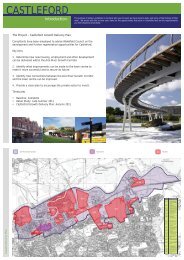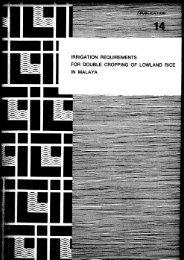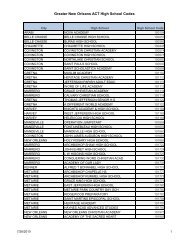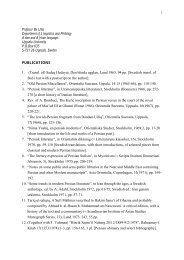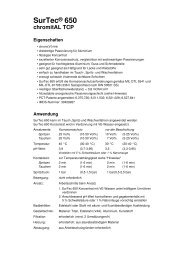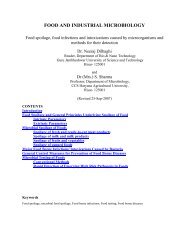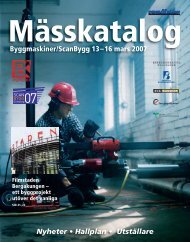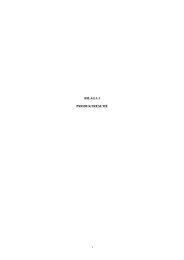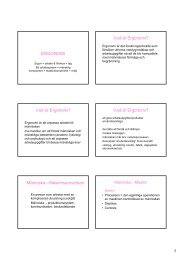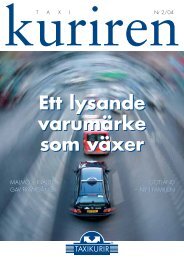On the Future of Indigenous Traditions - Munin
On the Future of Indigenous Traditions - Munin
On the Future of Indigenous Traditions - Munin
You also want an ePaper? Increase the reach of your titles
YUMPU automatically turns print PDFs into web optimized ePapers that Google loves.
survived through different periods <strong>of</strong> history and struggle to uphold and keep <strong>the</strong>ir<br />
traditions and customs from <strong>the</strong> past. As <strong>of</strong> today, Adivasis, as a people, face a loss <strong>of</strong><br />
recognition <strong>of</strong> who <strong>the</strong>y are, not only in <strong>the</strong> legal and political battle with <strong>the</strong> non-<br />
Adivasis, but also among <strong>the</strong>mselves. This is not because, <strong>the</strong>y come from an oral<br />
tradition which has changed with times and lost many <strong>of</strong> legends, but due to reasons<br />
that are ei<strong>the</strong>r gone beyond <strong>the</strong>ir control or not realized as important for keeping <strong>the</strong>ir<br />
identity. However, <strong>the</strong>re are still some elements that remain and we can try to look at<br />
<strong>the</strong> strengths <strong>of</strong> <strong>the</strong> Adivasi communities. The strengths are: (i) <strong>the</strong>ir languages which<br />
include <strong>the</strong>ir legends, folklore, and mythology; numerical and also place names that<br />
have meanings found, from <strong>the</strong> north <strong>of</strong> India to central and up to eastern part. There<br />
is an interesting observation made in <strong>the</strong> Deber (Dehber) Commission report about<br />
Adivasi philosophy, which reads that:<br />
“There is something in <strong>the</strong> tribal philosophy which has kept <strong>the</strong>se people free from<br />
<strong>the</strong> unseemly greed <strong>of</strong> material possession… Although tribal societies do not yearn<br />
obviously for improving <strong>the</strong>ir standards <strong>of</strong> living, <strong>the</strong>ir approach to <strong>the</strong> question <strong>of</strong><br />
need is still normal and rational.” 130<br />
(ii) <strong>the</strong>ir cultural practices which is <strong>the</strong> basis <strong>of</strong> <strong>the</strong>ir belief system, a few <strong>of</strong> <strong>the</strong>ir<br />
festivals and certain musical tunes and rhythms specific to certain festivals and<br />
occasions, also <strong>the</strong>ir cultural symbols i.e. Sarna, Jaher – <strong>the</strong> sacred groves and <strong>the</strong><br />
sasang diri – burial stones placed in a certain manner, (found in most <strong>of</strong> north-west,<br />
central and eastern parts <strong>of</strong> India); (iii) <strong>the</strong>ir democratic as well as egalitarian social<br />
and political system reflected in <strong>the</strong>ir customary practices <strong>of</strong> governance, still<br />
prevalent among all <strong>the</strong> five major Adivasi groups <strong>of</strong> Jharkhand: Jaipal Singh has<br />
proclaimed <strong>the</strong> notion <strong>of</strong> equality among <strong>the</strong> Adivasis and <strong>the</strong>ir society being <strong>the</strong><br />
“most democratic element in this country,” 131 ; (iv) large areas <strong>of</strong> customary lands and<br />
forests in <strong>the</strong> past registered under <strong>the</strong>ir khatiyans - individual titles, with certain<br />
categorisation <strong>of</strong> lands, among <strong>the</strong>m also some customary properties, which are for<br />
Adivasis who have obtained <strong>the</strong> khatiyans, but do not have it in <strong>the</strong>ir possession any<br />
130 Report <strong>of</strong> <strong>the</strong> Scheduled Caste and Scheduled Tribes Commission (Debar Commission) (New Delhi:<br />
Government <strong>of</strong> India, Government Printing Press, 1983)<br />
131 “Jaipal Singh’s speech in <strong>the</strong> Constitution Assembly Debates” (New Delhi, 1949, 9 pt.17) cited by<br />
Amit Prakash, Jharkhand Politics Development and Identity, (New Delhi: Orient Longman Limited,<br />
2001), 653.<br />
83



